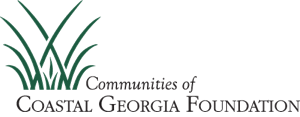The Communities of Coastal Georgia Foundation is composed of endowed and non-endowed funds, established by those who wish to create a charitable legacy that benefits causes they care about most in our region. We can help establish any of the following funds, as well as many others. Each provides for significant tax advantages in the present with the security of long-term philanthropy. For certain funds, the Charitable IRA Transfer affords an ideal tax-saving mechanism to fund your philanthropy.
To establish, the Foundation accepts various types of assets, including cash and appreciated property, publicly traded stock, closely held stock and/or real estate. The Foundation also accepts deferred or planned charitable gifts including bequests, life insurance, trusts, annuities, retirement accounts, life estates and other options. At your direction, we are pleased to work on your behalf with your attorney, tax professional and/or financial advisor to carry out your wishes.
Donor Advised Funds (DAF)
This is the Foundation’s most flexible and popular fund allowing the donor to make grant recommendations to a broad range of charities. Donors work with the Foundation staff to identify ways to use monies from their funds to address the community needs they care about most. In addition, the funds can be passed on to successor advisors for an unlimited time period, allowing future generations to be involved in funding decisions. Essentially, a DAF looks and feels like your own professionally staffed private foundation, but with better tax benefits, greater flexibility, fewer expenses, and without the worries of accounting and investment management. With a minimum of a $10,000 to establish a Donor Advised Fund, or $50,000 to establish an endowed advised fund, donors advise or recommend grants from their fund to create a lasting, impactful philanthropic legacy.
Designated Funds
Designated funds may be established with a minimum gift of $25,000 naming specific local and regional recipient charities at the time of establishment.
Unrestricted Funds
Donating to the Foundation’s general fund allows the donor to give back to the community in a general way, rather than supporting only one organization or cause. The fund meets the ever changing needs of the community and supports the Foundation’s broader grant making initiatives, and as worthy needs or emergencies arise, these funds ensure that financial resources are available.
Field of Interest Funds
Field of Interest Funds allow donors to designate funds to a particular charitable cause to meet a specific need; such as education, youth services, health and human services, arts and culture, faith-based initiatives, the environment and animal welfare.
Agency Endowment Funds
Non-profit agencies may create endowment funds with a minimum gift of $10,000 for the benefit of the agency itself and receive grant distributions annually in perpetuity.
Non-Endowed Agency Funds
Non-profits may create a non-endowed fund with $100,000 and make annual grants from the fund. Any annual distribution request must be at the $10,000 level or above.
Scholarship Funds
Donors may establish a scholarship fund for students with defined characteristics and may participate in the selection process as a member of the committee. Scholarship Funds are generally endowed and may be established with a minimum of $100,000, and a balance of $100,000 must be maintained for the awarding of scholarships.
Bridge Fund
This lower entry point fund brings the legacy of philanthropic giving to a larger demographic within our community. With a $1,000 opening donation, donors will have the full range of the Foundation's fund holder services, experiences, and reporting available. Use the Bridge Fund to distribute grants to local non-profits of your choosing. Over time, the Bridge Fund may convert to Donor Advised Fund status - upon meeting DAF parameters. Leave the worries of accounting and investment management with the Foundation, while reaping maximum tax benefits.


